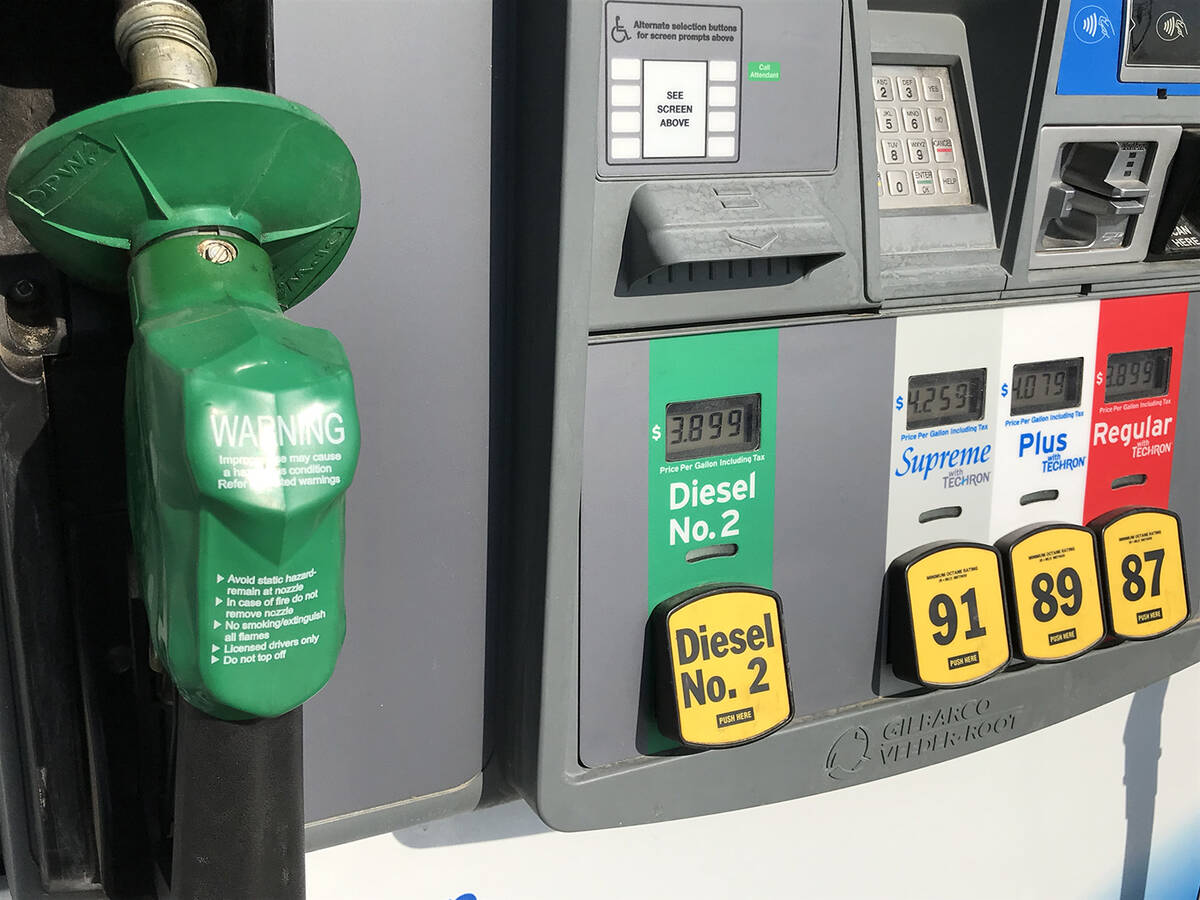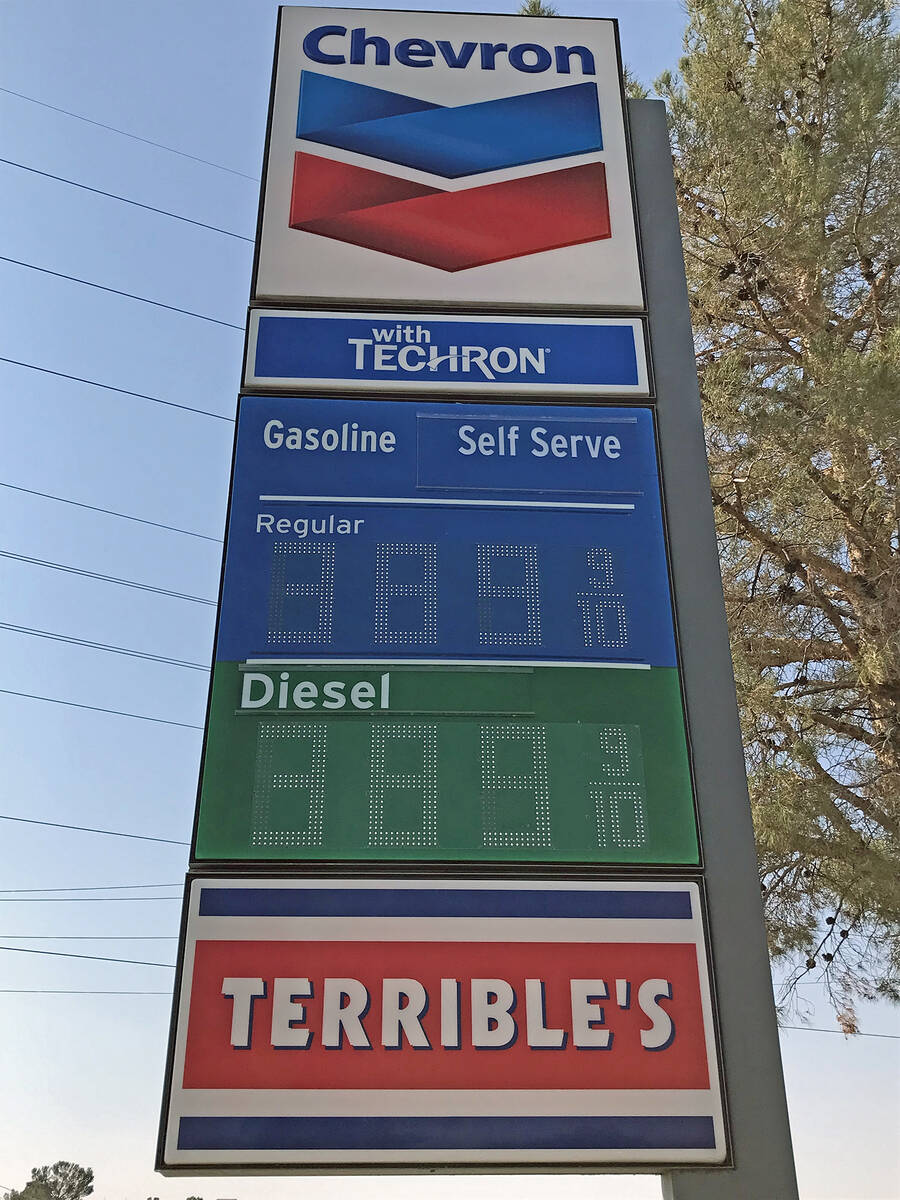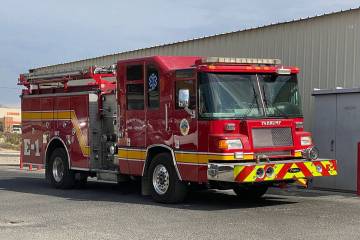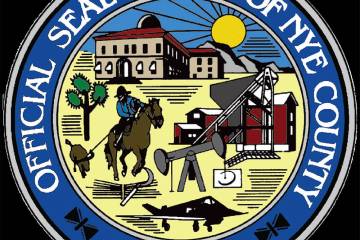Nye County diesel tax proposal set for 2022 ballot
After hosting a series of workshops geared toward gleaning the public’s opinion on a proposal to implement a five-cent Nye County diesel tax, officials with the Nye County Public Works Department went before the Nye County Commission this month to present their findings and determine the next step forward.
The commission was given two different options to consider, the first being establishment of the new local tax by a vote of the board members, as permitted by Nevada Revised Statute, and the second, placing the question on the ballot. In the end, the commission decided to send the question to the voters, who will now have to determine the fate of the proposed Nye County diesel tax during the 2022 general election.
The presentation made by public works that evening was very much the same as what had been discussed at each of the Nye County Diesel Tax workshops held in Pahrump, Amargosa, Beatty, Tonopah and Round Mountain throughout July and August. The crux of the matter, according to public works director Tim Dahl and assistant director Tom Bolling, is a lack of sufficient funding for Nye County roads, with the current budget of around $4.25 million simply not enough to keep pace with necessary maintenance, let alone rebuilding and major repair projects.
“According to our 2019 Streets and Highways plan update, with a budget of $4.25 million, it is estimated that the roads will continue to deteriorate from a Pavement Condition Index (PCI) of 48 in 2019 to a PCI of 45 in 2022,” information included with the commission’s Tuesday, Sept. 21 agenda detailed.
The PCI scale runs from zero to 100, with roads rated between 86 and 100 considered to be in good condition while those that are between 71 and 85 are satisfactory and those between 56 and 70 are rated as fair. Nye County’s average weighted PCI of 48 falls into the poor category, which ranges from 41 to 55. Very poor roads fall between 26 and 40 on the PCI and serious roads have a rating of 11 to 25, while those that have failed are rated at zero to 10.
As Bolling explained during the Sept. 21 meeting, roughly 10% of Nye County roads have failed and around 40% of them are rated as poor or below. This creates a big problem in terms of maintenance, as the worse the road condition becomes, the more difficult, and expensive, they are to maintain and repair. In many cases, maintenance isn’t even a real option anymore and for those roads, rebuilds will be needed. Major road projects are very pricey however, and the road department’s budget just isn’t big enough to cope with the million-dollar-per-mile average cost of a road rebuild.
“To maintain the current PCI in the near term, Nye County should budget $10 million per year (unadjusted for inflation) on maintenance and repair needs. Over time, the county’s PCI will start to gradually increase due to decreased deferred maintenance quantities,” the agenda information stated. “Additional funding would allow Nye County to complete more maintenance and construction projects in accordance with our 2019 Streets and Highways plan and approved Nye County Pavement Preservation Project List.”
With a current budget of $4.25 million and an estimated $10 million needed, the road department has a big gap to fill in terms of funding and that is why it is proposing the imposition of a five-cent per gallon diesel fuel tax.
As it stands today, those who purchase diesel fuel in Nye County pay taxes on their purchases, but not a single dime of those taxes make their way into Nye County’s coffers. Instead, all diesel tax generated in Nye County goes to the state or the federal government. Meanwhile, those who drive regular gasoline vehicles are paying nine-cents per gallon in local gasoline fuel taxes, leaving many county officials and members of the public to lament the unfairness of imposing a local fuel tax on one sector of the population but not on another.
When the presentation came to a close, commissioner Leo Blundo, who has been working on this topic for quite some time, thanked Dahl and Bolling for their ability to lay out the facts. Commissioner Bruce Jabbour noted that any time a new tax is proposed, it causes concern and in some cases outcry from the public but the fact of the matter is that local roads have been neglected for far too long and must be addressed. Commission chair Debra Strickland added that those in the construction industry, of which she is a part, would see the most impact from the implementation of a new tax and most she had spoken with had expressed their support for the idea. She then made a motion to impose a five-cent per gallon diesel tax, with a second from Jabbour.
That motion met with rejection, with commissioners Blundo, Donna Cox and Frank Carbone against. Blundo remarked that he would prefer to see the question go before the voters. Amenable to that method as well, Strickland switched it up and made a motion to have the question of whether or not to establish a Nye County diesel tax on the 2022 ballot, which then passed with all in favor.
The implementation of a county diesel tax will only go so far, however, with estimates coming in at around $425,000 per year, based on the diesel sales made in fiscal year 2018. Therefore, public works officials drafted several other options for commissioners to look at in the future, which could help bolster the road department’s budget and allow for proper maintenance of the county’s roads. These included the potential reinstatement of a roads property tax, increasing the current gasoline tax and allocating room tax funds, which are collected at Nye County hotels and are generally paid by tourists, to the road department. Items to address some of these options are expected to be included on future agendas.
The 2022 general election is scheduled to take place on Tuesday, Nov. 8, 2022.
Contact reporter Robin Hebrock at rhebrock@pvtimes.com
Previous coverage of diesel tax workshops
Readers can find previous coverage on this subject, which includes additional details on the reasoning behind the proposed diesel tax, on pvtimes.com by searching for "diesel tax workshop".


















